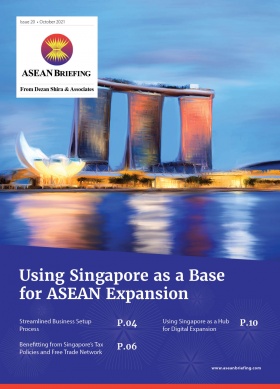Indonesia to Construct World’s Largest Green Industrial Park
Indonesia will construct the world’s largest green industrial park, located in Bulungan Regency in North Kalimantan province. The project is a collaboration between investors Indonesia, China, and the UAE, and currently spans 16,000 hectares with expansion plans of 30,000 hectares.
The park aims to attract producers of high-tech and precision products such as lithium-ion batteries, semiconductors, solar panels, green aluminum, and industrial silicon, among many others. The government estimates that construction will absorb 100,000 workers and between 50,000 and 60,000 for its operation, but this could rise to 200,000 workers if tenants bring their subsidiaries.
Hydropower plants and solar power plants will power the park, setting the model for the development of future green industrial parks in the country. An estimated US$12 billion is required to construct the plants and US$1 billion to develop ports near the park. Indonesia’s technical hydropower potential is estimated at around 75,000 MW and its usage will be driven by the government’s target to increase the share of renewable energy in the country’s total energy usage of 23 percent by 2025. In terms of solar energy, Indonesia has the technical potential of up to 207GW, although solar generation is less than one percent.
Opportunities for green aluminum production
Metal producers face several challenges as countries try to meet the requirements of the Paris Agreement. Aluminum produces the second-highest emissions (around one percent of greenhouse gas emissions come from aluminum production) and stands as the metal most affected by carbon pricing policies.
As such, reducing the industry’s reliance on fossil fuels and adopting new environmentally-friendly production processes will be challenging. However, the shift to hydro and solar power and investments in green smelting technologies to produce ‘low-carbon’, ‘green aluminum’ products are seeing greater demand.
This is in keeping with president Joko Widodo’s goal of shifting the country from an exporter of raw materials into a major producer of processed metals. Indonesia has the world’s sixth-largest bauxite reserves, the primary source of aluminum metal. Yet, the country exports the ore and, in an effort, to develop the downstream bauxite industry, the government banned exports of its raw ore in 2014 with companies required to refine the ore to export.
The government faced a huge budget deficit in 2016 and missed its revenue target by US$17.6 billion, resulting in the resumption of shipments of bauxite and other minerals under certain conditions. The government expects to ban the export of bauxite ore from January 2022.
Indonesia’s second-largest coal miner, PT Adaro Energy Tbk, plans to build an aluminum smelter in the green industrial park with an investment value of over US$730 million. The government hopes this will aid in the reduction of aluminum imports and take advantage of the huge bauxite deposits located in the five provinces that divide Kalimantan.
About Us
ASEAN Briefing is produced by Dezan Shira & Associates. The firm assists foreign investors throughout Asia and maintains offices throughout ASEAN, including in Singapore, Hanoi, Ho Chi Minh City, and Da Nang in Vietnam, Munich, and Esen in Germany, Boston, and Salt Lake City in the United States, Milan, Conegliano, and Udine in Italy, in addition to Jakarta, and Batam in Indonesia. We also have partner firms in Malaysia, Bangladesh, the Philippines, and Thailand as well as our practices in China and India. Please contact us at asia@dezshira.com or visit our website at www.dezshira.com.







